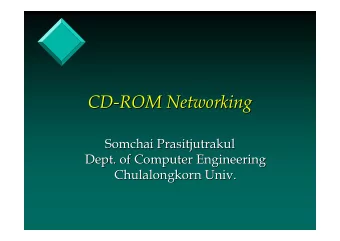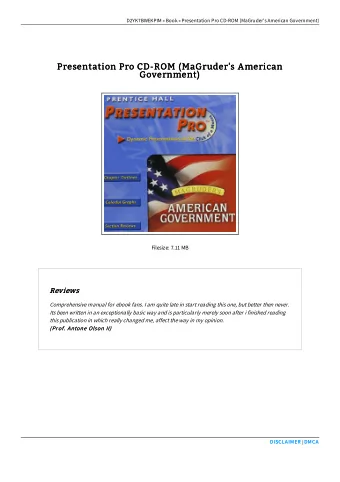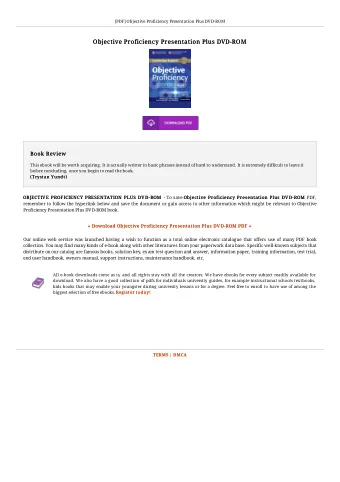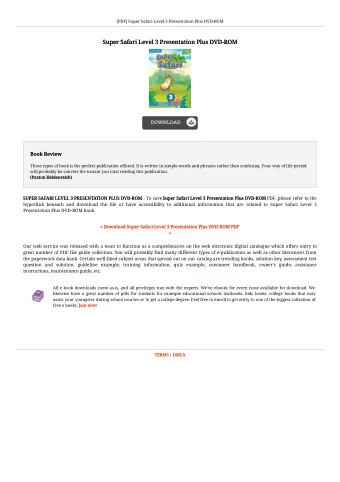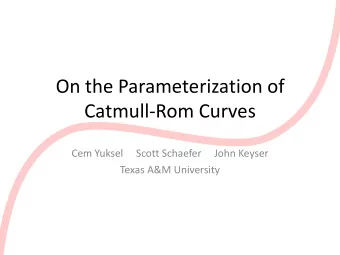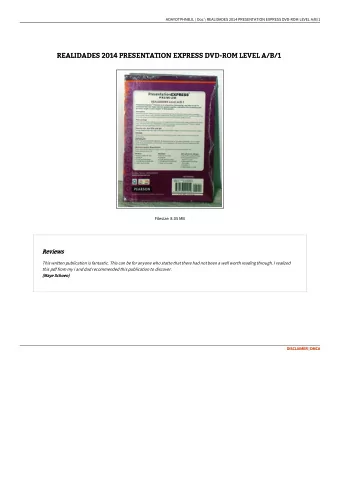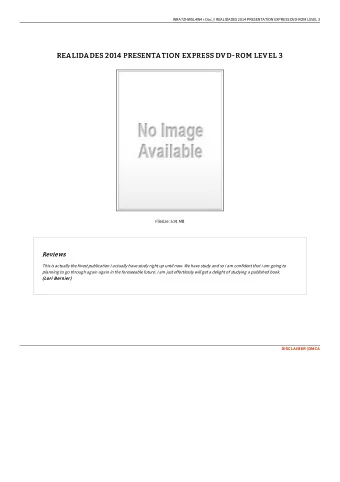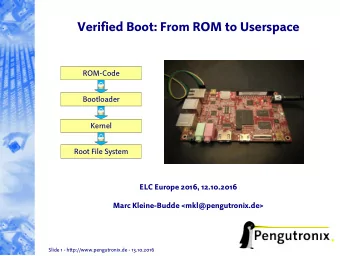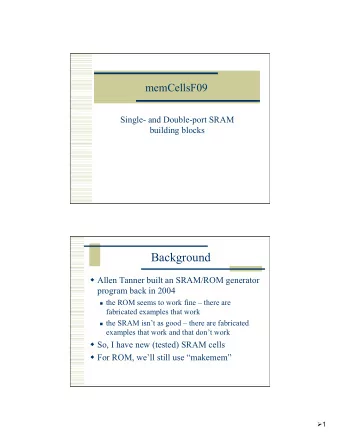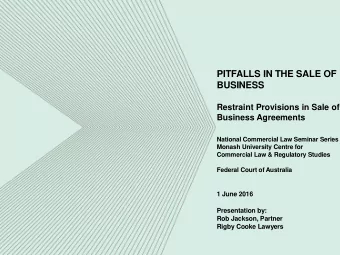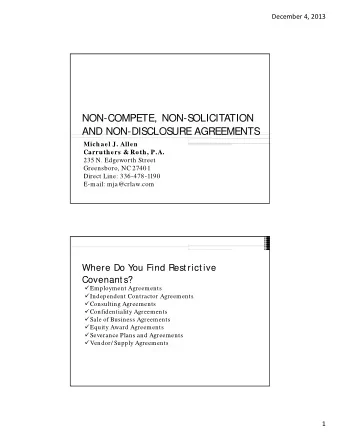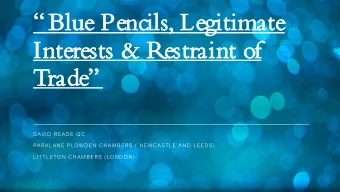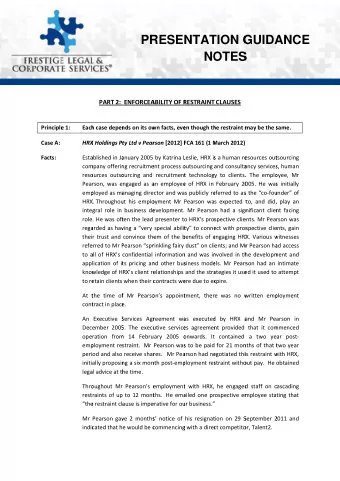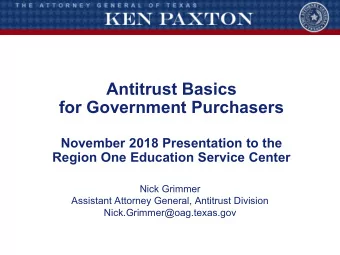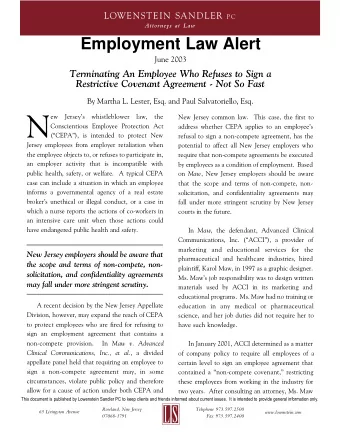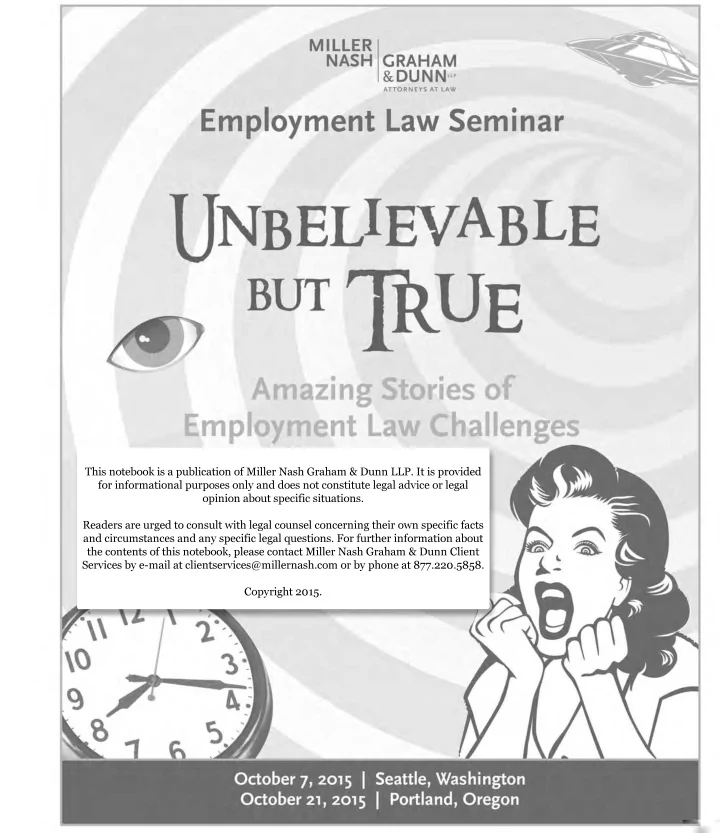
S UPERHEROES OR C REATURES F ROM THE B LACK L AGOON ? R ESTRICTIVE C - PDF document
S UPERHEROES OR C REATURES F ROM THE B LACK L AGOON ? R ESTRICTIVE C OVENANTS Jennifer Divine, Joseph Vance I. ENFORCEABILITY OF NONCOMPETITION AGREEMENTS. With certain employees, particularly those with significant access to confidential
S UPERHEROES OR C REATURES F ROM THE B LACK L AGOON ? R ESTRICTIVE C OVENANTS Jennifer Divine, Joseph Vance I. ENFORCEABILITY OF NONCOMPETITION AGREEMENTS. With certain employees, particularly those with significant access to confidential information or important clients or customers, an employer may want to limit the competitive activities that employees can undertake after leaving employment and either branching out on their own or going to work for another employer in the same industry. Employers may require agreement to a noncompete and/or other restrictive covenants as a condition of employment or advancement in certain fields. Common provisions include agreements not to solicit or perform work for the former employer's customers for a certain period of time, as well as agreements not to compete within a certain market or geographic area for a particular amount of time after departing from the former employer. While some states, such as California, refuse to allow noncompetition agreements except in very limited circumstances, noncompetes and other restrictive covenants are usually valid and enforceable in Oregon and Washington, as long as they meet the standards for enforcement set out by the legislature and the courts in each state. A. Differences between Oregon / Washington law. Noncompete agreements in Oregon are governed by a statute, ORS 653.295. Under the terms of the statute, noncompete agreements entered into after January 1, 2008, are voidable unless they comply with the following provisions: • The employer must present the noncompete to a prospective employee as part of a "written employment offer" at least two weeks in advance of starting employment or the noncompete must be entered into with an existing employee as part of a "bona fide advancement" in compensation and job duties. • The employee must be an exempt employee under state wage-and-hour law. • The employer must have a "protectable interest." • The employee's annual gross salary must exceed "the median family income for a four person family" as determined by the United States Census Bureau for the most recent year available at the time of the employee's termination (currently over $70,000). In addition to satisfying the requirements of the statute, the restrictions must also comply with common-law requirements related to contracts that restrain trade. Under Oregon common law, to be enforceable, a restrictive covenant: 2015 E MPLOYMENT L AW S EMINAR -1-
(1) must be partial or restricted in its operation in respect either to time or place; (2) must be on some good consideration; and (3) must be reasonable, that is, it should afford only a fair protection to the interests of the party in whose favor it is made, and must not be so large in its operation as to interfere with the interests of the public. Unlike Oregon, Washington does not have a statute that governs noncompete agreements. In Washington, it is well established that covenants not to compete upon termination of employment are enforceable if they are "reasonable." Whether a covenant is reasonable involves a consideration of three factors: (1) whether restraint is necessary for the protection of the business or goodwill of the employer, (2) whether it imposes upon the employee any greater restraint than is reasonably necessary to secure the employer's business or goodwill, and (3) whether the degree of injury to the public is such loss of the service and skill of the employee as to warrant non-enforcement of the covenant. B. What is adequate consideration? 1. Oregon Under Oregon statutory law, a new employee must receive two weeks' advance written notice of the noncompete agreement. For existing employees, a noncompete agreement is enforceable only if it is in conjunction with a "bona fide advancement of the employee with the employer." A "bona fide advancement" requires more than a raise in salary, an improved benefit package, or some other form of additional compensation or consideration. It must also include an actual change in the employee's job status or duties performed. In addition, the change in job status or responsibilities must justify the imposition of a noncompetition restriction. The legislative intent of that provision indicates that the focus was upon the employee's job duties, not on the consideration otherwise proffered by the employer. The change of duties or status must support imposition of the noncompete agreement. 2. Washington The general rule in Washington is that for a new employee, consideration exists if the employee enters into a noncompete agreement when the employee is first hired. For an existing employee, continued at-will employment does not provide sufficient independent consideration to support a noncompete agreement. Independent consideration requires new promises or obligations previously not required of the parties. Independent consideration may include increased wages, a promotion, a bonus, a fixed term of employment, or access to protected information. In addition, for employees who are given the opportunity to become shareholders or purchase stock in a company, the mutual promises of shareholders will be considered adequate consideration for a noncompete agreement among the shareholders even if the actual noncompetition restriction is contained in employment agreements entered into during employment. 2015 E MPLOYMENT L AW S EMINAR -2-
C. Identifying protectable interests. In both Oregon and Washington, in order for a noncompete agreement to be enforceable, the employer must show that it has a legitimate interest entitled to protection. The rule in Oregon and Washington, as well as most other jurisdictions, is that skills and industry knowledge acquired while working for the employer are not a "protectable interest" that justify enforcement of a noncompete agreement. Courts have described the need for a protectable interest this way: The essential purpose of the post-employment restraint . . . is not to prevent the competitive use of the unique personal qualities of the employee—either during or after the employment—but to prevent competitive use, for a time, of information or relationships which pertain peculiarly to the employer and which the employee acquired in the course of the employment. In short, if the purpose of a restriction is merely to prevent a talented and experienced employee from going to work for a competitor, the restriction will not be enforced. But if, by virtue of the employee's employment with the employer, the employee has acquired information or relationships (i.e., confidential information regarding the employer's operations, marketing strategies, specific information relating to customers) that would enable the employee to compete unfairly (by virtue of the information acquired during the employee's employment) with the employer, then that creates a legitimate interest entitled to protection. Accordingly, in any analysis of a noncompete agreement, it is critical to be able to identify and articulate the legitimate interest entitled to protection. Oregon: In 2008, ORS 653.295 was amended to add a definition of "protectable interest" as follows: [A]n employer has a protectable interest when the employee: . . . Has access to trade secrets, as that term is defined in ORS 646.461; [or] . . . Has access to competitively sensitive confidential business or professional information that otherwise would not qualify as a trade secret, including product development plans, product launch plans, marketing strategy, or sales plans[.] 1 D. Reasonableness of time / scope / geographic restrictions. In both Oregon and Washington, time, scope, and geographic restrictions must be "reasonable." Oregon courts have stated that to be "reasonable," the restriction "should afford only a fair protection to the interests of the party in whose favor it is made, and must not be so large in its operation as to interfere with the interests of the public." Similarly, Washington 1 The definition also includes a provision related to on-air talent by an employer in the business of broadcasting. 2015 E MPLOYMENT L AW S EMINAR -3-
Recommend
More recommend
Explore More Topics
Stay informed with curated content and fresh updates.


